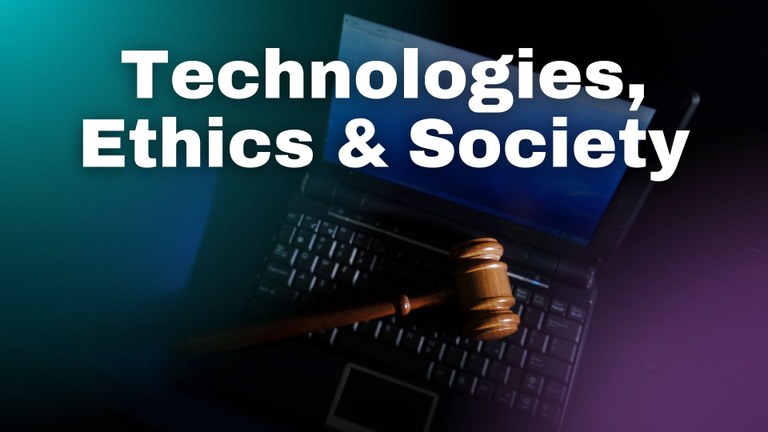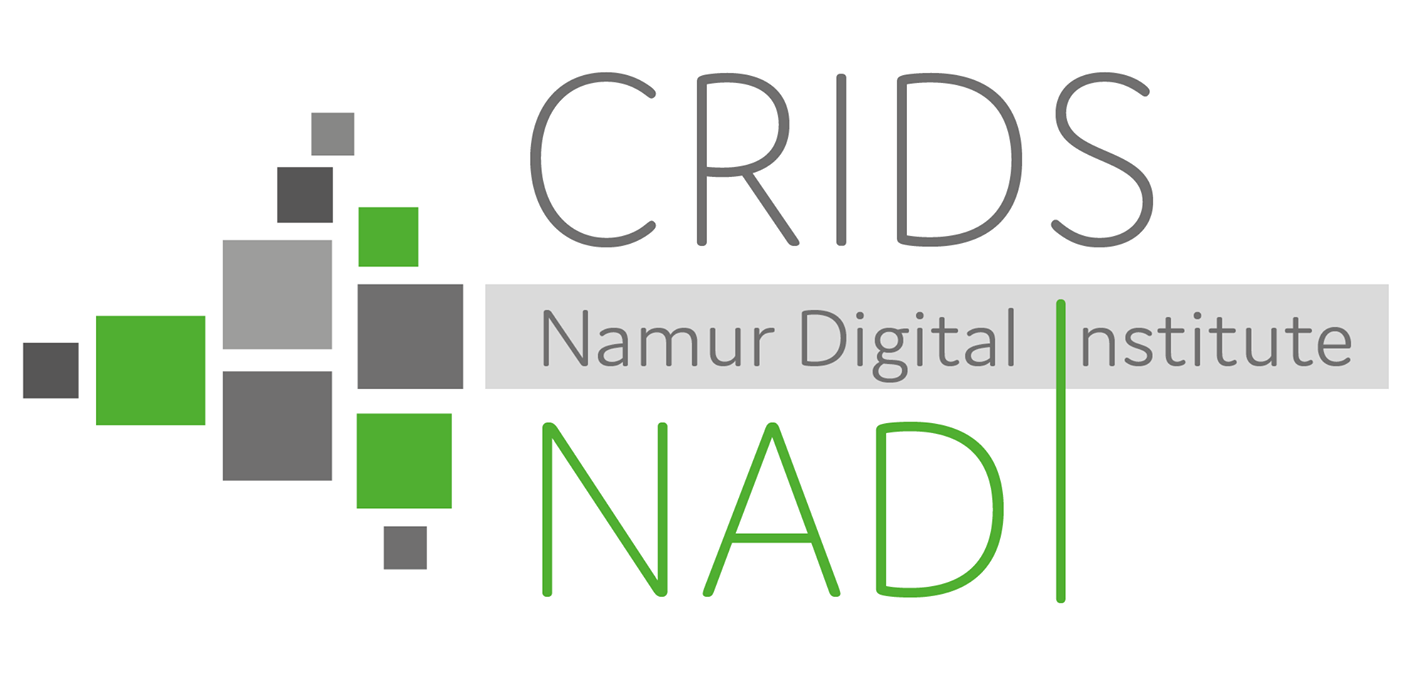Technologies, Ethics & Society

Information technologies are deeply implicated in the shaping of the contemporary human condition and its social ordering. To some extent, these technologies are ‘micro-politics’ which endorse, in their concepts and designs, moral and political choices affecting our relationships to oneself, to the others and to the world. They are both a social construction and a social constraint.
Three scientific axes structure the research:
- The first axis aims to produce social and ethical analysis of information systems. The socio-technical systems are designed, at their very core, to make possible specific usages – making other impossible. Hence, social, ethical and technical assumptions are necessarily embedded within such systems. The public discussions of socio-technical systems require these assumptions to be disclosed. UTES has a longstanding experience in following the systems’ development in order to make visible and discussible the ethical, social and technical choices made along the design processes.
- The second axis seeks to foster collective deliberation around socio-technical systems. The deliberations around socio-technical systems may conveniently be thought as taking place in three main arenas: discussions between users, commercials and engineers designing such systems, negotiations by users, managers and engineers deploying such systems, and deliberations among citizens reflecting upon the social and technical transformations they live. UTES has a significant record in deploying a variety of methods for accompanying collective deliberation about the social and ethical values embedded in technical systems.
- The third axis wishes to document the impacts socio-technical systems have on actual organizations. The impacts, although various and numerous, may often be grouped within the third following categories. From the perspective of users: the norms embedded within socio-technical systems often leave out sub-categories of the populations. From the perspective of organizations: the disruption caused by socio-technical systems often reconfigure the organization of work and the distribution of competences. From the perspective of discourses: the deployment of socio-technical systems support and are supported by powerful representations that shape our imaginaries and futures. UTES has, along the years, accumulated a significant knowledge about the ways socio-technical systems transform our institutions.
Head of Unit
Members
- Marie Gevers
- Nathalie Grandjean
- Jérémy Grosman
- Anne-Sophie Lemaire
- Antoinette Rouvroy
- Marie-des-Neiges Ruffo de Bonneval
Latest publications
A.-S. LEMAIRE, « L’audience par vidéoconférence en matière civile », Le pli juridique, 2023, n°63, pp. 23-28.
Key publications
Books
Grandjean, N. (2020) Généalogies des corps de Donna Haraway. Diffractions, figurations, féminismes, Bruxelles, Presses de l’ULB.
Grandjean, N., Loute, A. (2019). Valeurs de l'attention: perspectives éthiques, politiques et épistémologiques, Lille, Presses Universitaires du Septentrion.
Lobet-Maris, C. , Grandjean, N., Vanmeerbeek, P. (2016). Petits entretiens de la vie privée: Expérience quotidienne sur le web. Vol. 4. Presses universitaires de Namur
Papers
Lobet-Maris, C., Grandjean, N., De Vos, N., Thiry, F., Pagacz, P., & Pieczynski, S. (2019). Au cœur de la contrainte: quand l’éthique se fait bricolage. Revue française d'éthique appliquée, (1), 72-88.
Loute, A., & Grandjean, N. (2019). The materiality of virtuality: towards an intensification of invisibilities. (In)Disciplines, (3), 17 (online)
Grosman, J., Reigeluth, T. (2019). Perspectives on algorithmic normativities: engineers, objects, activities. Big Data & Society, 6(2), 2053951719858742.
Piccard, S., Pagacz, P., Boulanger, C., Leclercq, P., Lona, M., Peltier, A. & Booukhebouze, M. (2018). Elderly and technologies: between myths and reality. European Geriatric Medicine, 2018(9 (supp 1)).
Grandjean, N. (2017), Normalising what? About a GMO Body and Shan’s Life. DiGeSt. Journal of Diversity and Gender Studies, 4.2 - 2017, 33-46
Rouvroy, A., & Stiegler, B. (2016). The digital regime of truth: from the algorithmic governmentality to a new rule of law. La Deleuziana: Online Journal of Philosophy, 3(1), 6-29.
Broadbent, S., & Lobet-Maris, C. (2015). Towards a grey ecology. In The onlife manifesto (pp. 111-124). Springer, Cham.
Main projects
- SmartGate ( Wal2Win RW) - 1/03/ 2019 → 2022 - PI Lobet-Maris - Researcher : Grosman J.
- GreenWork Appropriation sociale d’un projet d’innovation environnementale et organisationnelle (Fondation Close) 1/10/17 → 31/12/21 - PI Collard A.S. & Lobet-Maris C. - Researcher : Pieczynski S.
- INSPEX Integrated Smart Spatial Exploration System (UE-H2020) 1/01/17 → 31/12/19 - PI Grandjean N. & Lobet-Maris C. - Researchers : Grandjean, N., Thiry Fl.
- Pervasive and UseR Focused BiomeTrics BordEr ProjeCT (UE-H2020) 1/09/2016-31/08/2019 - PI: Lobet C. - Researcher: Grosman J.
- M-Health (FEDER) 1/10/16 → 31/12/19 - PI Lobet-Maris C. - Researcher : Pagacz P.
- TeSLA : An adaptive Trust-Based Assessment System for Learning (UE-H2020) 1/01/16 → 31/12/18 - PI Lobet-Maris C. - Researcher : De Vos N.
- SEAMPAT: Amélioration de la continuité des traitements médicamenteux par le développement d’une plate-forme de réconciliation médicamenteuse favorisant la participation active du patient (RW) 1/06/14 → 31/05/17 - PI Lobet-Maris C. et Grandjean N. - Researcher : Vanmeerbeek P.
- IPATCH: Intelligent Piracy Avoidance using Threat detection and Countermeasure Heuristics (H2020) 01/01/2014 - 31/12/2017 PI Lobet-Maris C. et Grandjean N. - Researcher : Grandjean N. Dumortier, F.
- P5 Privacy Preserving Perimeter Protection Project (H2020) 1/08/13 → 1/08/16 - PI Lobet-Maris C. - Researchers Grandjean N. , Loute A.
- La gouvernementalité algorithmique: mise en nombre du réel, gouvernementalités contemporaines et nouvelles fabriques du sujet (PRD FNRS) 1/07/13 → 30/06/17, PI Rouvroy A. et Berns T (ULB) - Researcher : Grosman J.
Theses
- Sami Pieczynski thesis is based on the GREENWORK project. It aims at understanding how organizational change is appropriated by the different actors involved. This thesis is based on the analysis of metaphors, social representations and conventions. (to be defended 2021)
- Jeremy Grosman’s thesis, titled “Making Algorithms, Finding Optimum: A Philosophical Inquiry into Optimization Algorithms” seeks, at the crossroads of History and Philosophy of Science and Science and Technology Studies, to document and question engineering practices through series of engaging case studies staging algorithms, ranging from linear programming to machine learning, passing by metaheuristics. (to be defended 2021)
- Nathalie Grandjean’s thesis « Corps et Méthodes. Penser le corps avec Donna J. Haraway » has been defended in June 2018 (sup. Claire Lobet-Maris & Sébastien Laoureux).
Researchers
- Nathalie Grandjean - Philosopher - PhD in Philosophy - Senior researcher
- Jeremy Grosman - ¨Philosopher - PhD Candidate in Philosophy - Researcher
- Sami Pieczynski - Anthropologist - PhD Candidate in Sociology - Researcher
- Claire Lobet-Maris - Sociologist - PhD in Labor Science (Organizational Studies) - Senior researcher - Head of Unit
- Alain Loute - Philosopher - PhD in Philosophy - Associated Senior researcher (Catholic University - Lille -France)
- Antoinette Rouvroy - Legal scientist - PhD in Law - Permanent research associate at the Belgian National Fund for Scientific Research (FNRS) - Senior researcher





